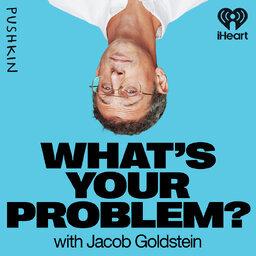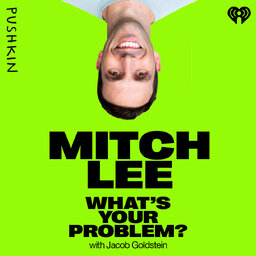Google's Journey to the Edge of Search
Cathy Edwards is vice president and GM of Search at Google. Cathy's problem is this: how do you teach computers to tell people what they want to know, even if they don't know how to ask?
Google's last leap: Moving from search results based on keywords to search results based on concepts. The next step: Figuring out how to let people search using not just words, but combinations of words and images.
If you’d like to keep up with the most recent news from this and other Pushkin podcasts be sure to subscribe to our email list.
 What's Your Problem?
What's Your Problem?


